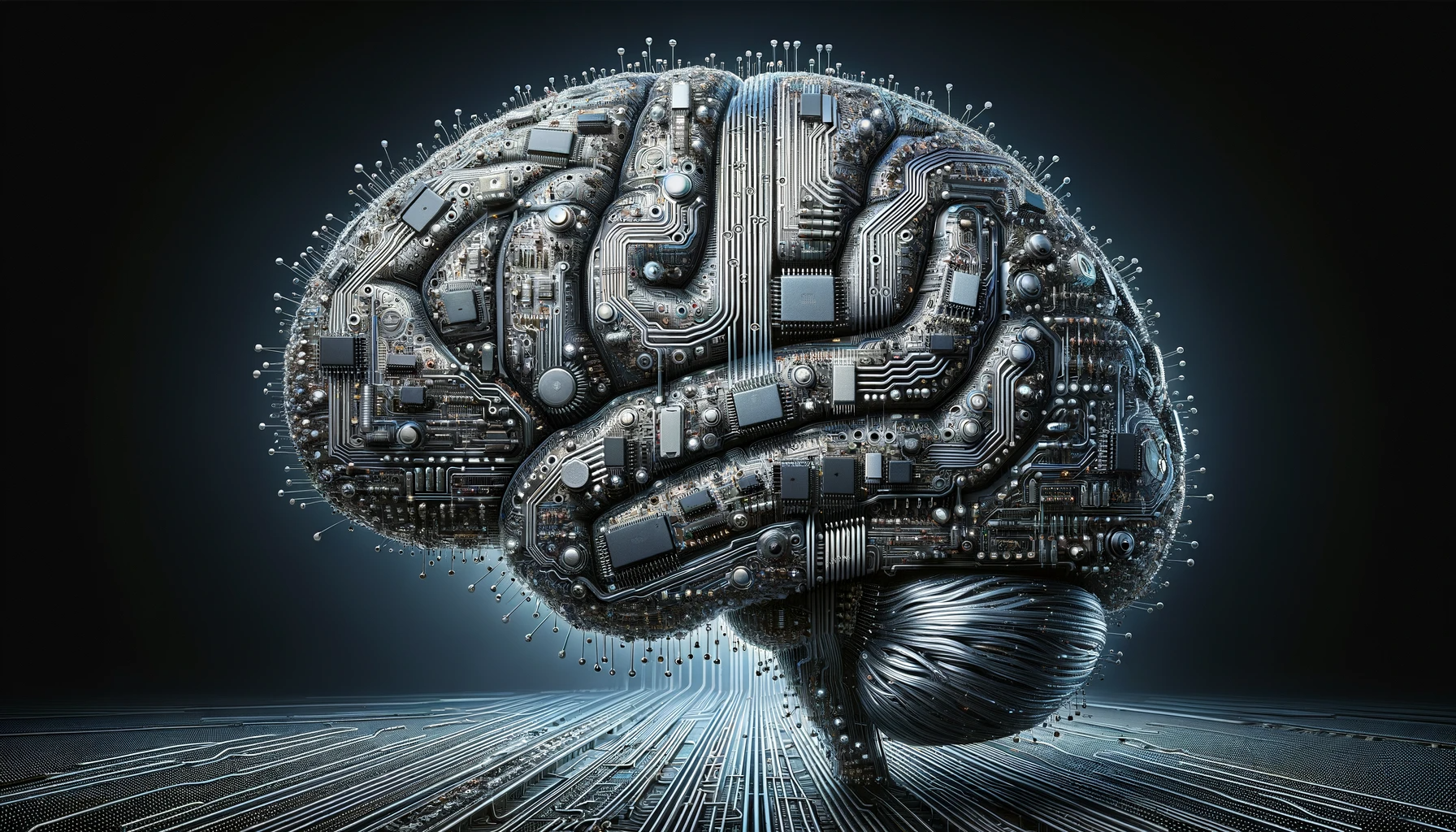The Sweater You Wear to the Dance: Reflections on Computers, AI, and You
Possibly the most overused and destructive analogy of the century compares the human brain to a computer. The brain, human or animal, is nothing like a computer. The brain does not contain silicon chips or transistors. Its parts were not mined by warring factions in the Congo. Millions have not been slaughtered in wars financed by the extraction of tin, tantalum, tungsten, and gold for use in our cell phones, laptops, and other devices, nor was there radioactive waste produced in the process of growing a brain. Our brains were not assembled by slave wagers in China. No lakes or oceans were polluted by multiplying brain cells evolving in wombs. Our circuits were not fashioned by Gates, Jobs, Schmidt, or Zuckerberg. Our brains do not run on batteries. Our brains do not download information.
Why even make the analogy? It’s a good sales pitch: toasters with human faces and cute humanoid voices are almost as seductive as cat videos. They calm our organic uneasiness around things made of hard matter, of metal, rubber, plastic. Technology with a human face tries to present the inorganic as if it were kin. Meanwhile, the creatures already here — birds, dogs, giraffes, whales — whose extinction appears not to trouble Silicon Valley overmuch, are on their own. The only way to monetize them is either by killing them or making them captives.
Even seemingly serious people debate the “moral questions” surrounding how we might treat our eventual robot neighbors — dare I break a robot’s heart? When you cut a robot, does it not bleed? Well, actually, it doesn’t. The question, absurd at every level, offers a convenient way to avoid asking hard questions about the morality surrounding our present-tense behavior toward our fellow humans. Where is the moral outrage that should burst like the Hoover Dam over the heads of those in the military who help conceal war crimes? Or over the bankers who, borrowing newly minted dollars at .05% (thank you, Quantitative Easing) proceed to charge 19-30%, and up, for consumer debt? Or over the war-profiteers at Halliburton? Or the extrajudicial killings in the Philippines? Or the savage bombing of Yemen by the Saudis and the Emirates? The detention of millions of Uighurs? Israeli brutality against the Palestinians? The resurgent violence in Colombia? Or the fact that, since the start of the century, 2.5 million people in Latin America have died violent deaths — more than have been killed in all the murderous rampaging in the Middle East? These matters are quickly set aside, if they were ever raised, when the question of the ethical treatment of robots comes along.
We marvel at all the wrong things. Who could imagine that the spit of a bug might be spun into the sweater you wear to the dance?
Askold Melnyczuk’s book of stories, The Man Who Would Not Bow, appeared in 2021. His four novels have variously been named a New York Times Notable, an LA Times Best Books of the Year, and an Editor’s Choice by the American Library Association’s Booklist. He is also co-editor of From Three Worlds, an anthology of Ukrainian Writers. His published translations include work by Oksana Zabuzhko, Marjana Savka, Bohdan Boychuk, Ivan Drach, and Skovoroda. His shorter work, including essays, stories, and reviews, have appeared in The Paris Review, The New York Times, The Missouri Review, The Times Literary Supplement (London), The Los Angeles Times, The Harvard Review and elsewhere. He’s received a three-year Lila Wallace-Readers’ Digest Award in Fiction, the McGinnis Award in Fiction, and the George Garret Award from AWP for his contributions to the literary community. As founding editor of Agni he received PEN’s Magid Award for creating “one of America’s, and the world’s, leading literary journals.” Founding editor of Arrowsmith Press, he has taught at Boston University, Harvard, Bennington College and currently teaches at the University of Massachusetts Boston. Most recently he has been organizing readings in support of writers in Ukraine, as well as interviewing writers for his For the Record series which appears online at Agni Online (https://agnionline.bu.edu/blog/for-the-record-conversations- with-ukrainian-writers/), as well as on Arrowsmith Press’s website.


